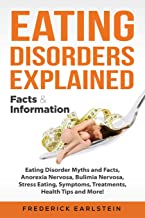Bulimia Nervosa
A serious eating disorder marked by binging, followed by methods to avoid weight gain.
Bulimia is a potentially life-threatening eating disorder.
People with this condition binge eat. They then take steps to avoid weight gain. Most commonly, this means vomiting (purging). But it can also mean excessive exercising or fasting.
Treatments include counseling, medications, and nutrition education.
Cluster Number:
Wiki Number: W028
Diagnosis: Bulimia Nervosa
US Patients: About 1%
World Patients: 3.6M
Sex Ratio: M;W9
Age Onset: G13-20
Brain Area: pfc, cingulates, insula cortices
Symptoms: binge eating & vomiting/laxatives; vomit-then-binge cycles
Progression: tooth breakdown, depression, drugs, self-harm, suicide; uncontrolled serotonin
Causes: fixation on thinness and body image from media. African-American women 1.5X that of Caucasian women
Medications: antidepressants
Therapies: CBT, (Jim Lohr: less attention to thin models in the media?) family therapy+C3:C14
Youtube Video: Bulimia Nervosa
Amazon or Library Book:
Eating Disorders Explained
Amazon or Library Book:
Bulimia Nervosa and Eating Disorder
Click the book to link or buy from Amazon.
Click the book to link or buy from Amazon.


